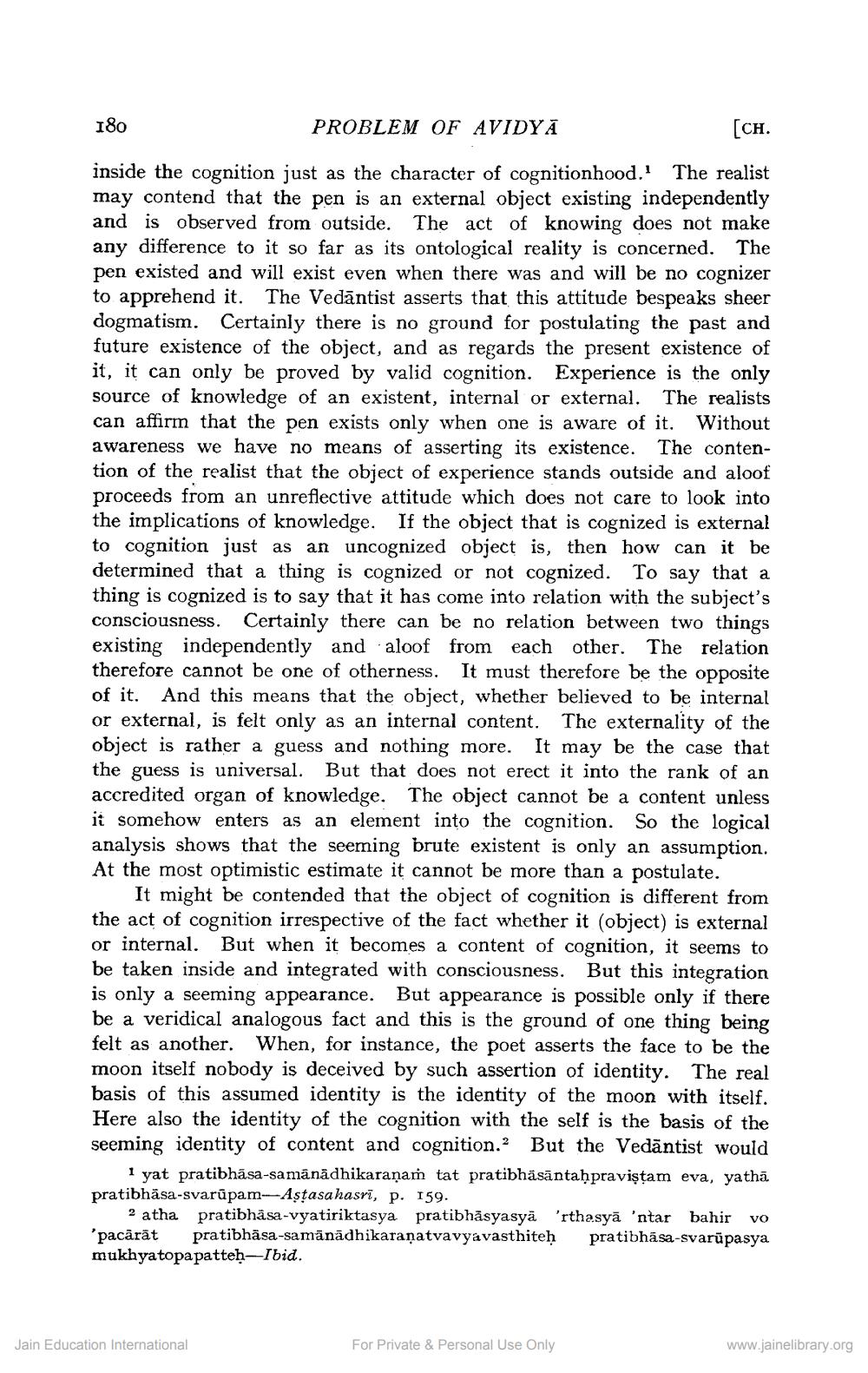________________
180
PROBLEM OF AVIDYA
[CH.
inside the cognition just as the character of cognitionhood. The realist may contend that the pen is an external object existing independently and is observed from outside. The act of knowing does not make any difference to it so far as its ontological reality is concerned. The pen existed and will exist even when there was and will be no cognizer to apprehend it. The Vedāntist asserts that this attitude bespeaks sheer dogmatism. Certainly there is no ground for postulating the past and future existence of the object, and as regards the present existence of it, it can only be proved by valid cognition. Experience is the only source of knowledge of an existent, internal or external. The realists can affirm that the pen exists only when one is aware of it. Without awareness we have no means of asserting its existence. The contention of the realist that the object of experience stands outside and aloof proceeds from an unreflective attitude which does not care to look into the implications of knowledge. If the object that is cognized is external to cognition just as an uncognized object is, then how can it be determined that a thing is cognized or not cognized. To say that a thing is cognized is to say that it has come into relation with the subject's consciousness. Certainly there can be no relation between two things existing independently and aloof from each other. The relation therefore cannot be one of otherness. It must therefore be the opposite of it. And this means that the object, whether believed to be internal or external, is felt only as an internal content. The externality of the object is rather a guess and nothing more. It may be the case that the guess is universal. But that does not erect it into the rank of an accredited organ of knowledge. The object cannot be a content unless it somehow enters as an element into the cognition. So the logical analysis shows that the seeming brute existent is only an assumption. At the most optimistic estimate it cannot be more than a postulate.
It might be contended that the object of cognition is different from the act of cognition irrespective of the fact whether it (object) is external or internal. But when it becomes a content of cognition, it seems to be taken inside and integrated with consciousness. But this integration is only a seeming appearance. But appearance is possible only if there be a veridical analogous fact and this is the ground of one thing being felt as another. When, for instance, the poet asserts the face to be the moon itself nobody is deceived by such assertion of identity. The real basis of this assumed identity is the identity of the moon with itself. Here also the identity of the cognition with the self is the basis of the seeming identity of content and cognition. But the Vedāntist would
1 yat pratibhāsa-samānādhikaraṇam tat pratibhāsāntaḥpraviştam eva, yathā pratibhāsa-svarūpam-Astasahasri, p. 159.
2 atha pratibhāsa-vyatiriktasya pratibhâsyasyā 'rthasyā 'ntar bahir vo 'pacärāt pratibhāsa-samānādhikaranatvavyavasthiteh pratibhāsa-svarūpasya mukhya topa patteh-Ibid.
Jain Education International
For Private & Personal Use Only
www.jainelibrary.org




